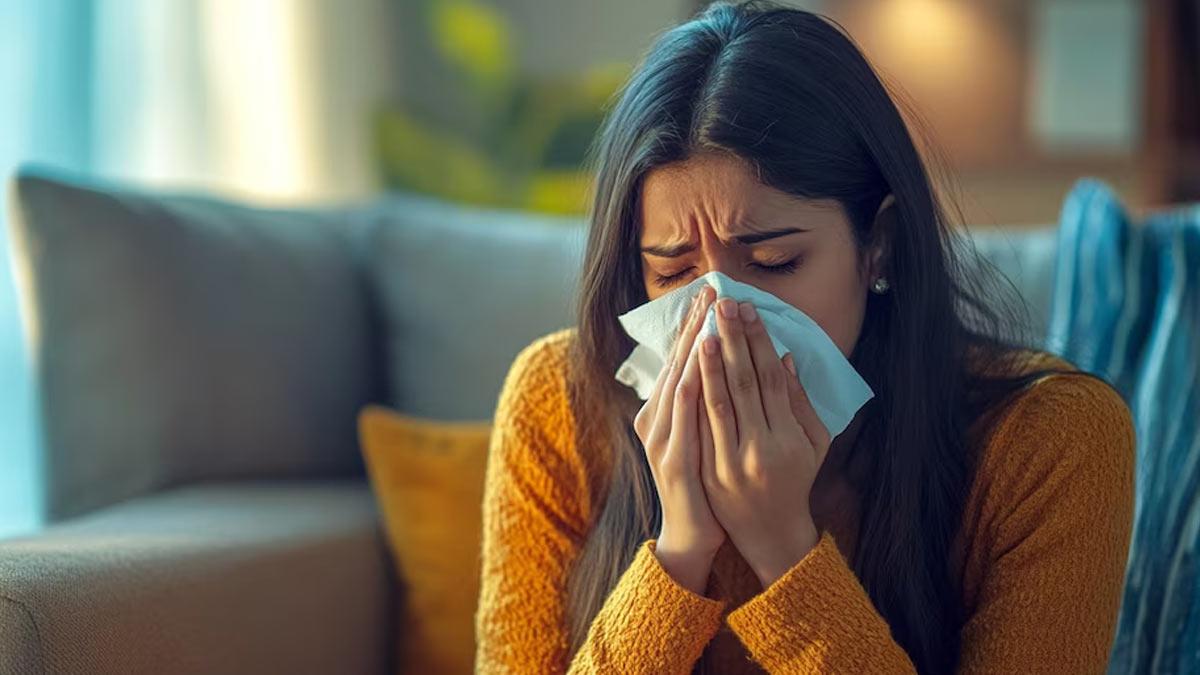
October brings pleasant weather and festive vibes, but for many, it also signals the onset of allergy season. With the change in climate and the increase in allergens like pollen and dust mites in the air, people start experiencing sneezing fits, watery eyes, congestion, and itchy skin. This seasonal discomfort, often known as allergic rhinitis or hay fever, can disrupt daily life. But fear not! With a few proactive steps and some knowledge of effective prevention, you can enjoy October without the allergy woes.
Table of Content:-
As temperatures begin to cool down, the fall allergy season kicks in. The main culprits are ragweed pollen, mold spores, and dust mites, which are most active during this period. Ragweed pollen, in particular, is a common cause of allergic reactions in many parts of the world. According to a study published in the Journal of Allergy and Clinical Immunology, approximately 23 million Americans are affected by ragweed pollen during the fall season.
Additionally, the accumulation of mold due to decaying leaves and moisture can also trigger allergic reactions. This combination of pollen and mold makes fall a difficult time for those prone to allergies.
Common Symptoms of Fall Allergies

- Sneezing
- Runny or stuffy nose
- Itchy or watery eyes
- Scratchy throat
- Coughing
- Fatigue
- Asthma flare-ups (in people with asthma)
For those with asthma, allergy season can be particularly challenging. A study published in Allergy, Asthma & Immunology Research found that seasonal allergens like ragweed pollen can exacerbate asthma symptoms, leading to increased difficulty in breathing and heightened inflammation in the airways.
Also read: 7 Food Allergy Symptoms To Watch Out For In Children
Steps to Protect Yourself from Allergies
While it's impossible to completely avoid allergens during the fall, you can minimize their effects by making a few changes to your lifestyle and environment.
Keep Windows Closed: As much as the cool October breeze is tempting, it’s best to keep windows shut during peak allergy hours (usually early morning) to prevent pollen from entering your home. Use air conditioning to keep your indoor air clean and filtered.

Invest in an Air Purifier: A high-efficiency particulate air (HEPA) purifier can filter out pollen, mold spores, and dust mites from indoor air. HEPA filters are highly effective in reducing allergens and keeping the air inside your home allergy-free.
Wash Your Clothes and Bedding Frequently: Pollen can stick to clothes, skin, and hair, making it essential to change your clothes after spending time outside. Washing your bedding at least once a week in hot water can reduce dust mites and pollen accumulation.
Take Allergy Medications: Over-the-counter antihistamines, decongestants, and nasal sprays can offer relief from allergy symptoms. If your symptoms are severe, consider consulting an allergist for prescription medications or allergy shots (immunotherapy) to build long-term resistance against allergens.
Monitor Pollen Counts: Many weather websites and apps provide daily pollen count forecasts. Try to stay indoors when the counts are particularly high, especially during windy days when pollen is more likely to be in the air.
Shower at Night: Pollen can stick to your skin and hair throughout the day, so it's a good idea to shower before bed. This reduces the amount of pollen you bring to bed and helps you sleep more comfortably without sneezing or itching through the night.

Clean Up Fallen Leaves: Wet leaves can create a breeding ground for mold, which is another common allergen in October. Regularly raking and disposing of fallen leaves from your yard can reduce the likelihood of mold spores entering your home.
Also read: Dust Allergy: Here's How You Can Get Rid of It
Consider Natural Remedies
For those looking for natural solutions, a saline nasal rinse can help remove allergens from the nasal passages, providing immediate relief from congestion and irritation. Honey is another popular home remedy believed to help with seasonal allergies, though evidence on its effectiveness remains mixed. Some people swear by local honey, which they believe helps the body build tolerance to local pollen.
When to Seek Professional Help
If you’re struggling with severe allergies despite taking precautions, it may be time to consult a healthcare professional. An allergist can conduct tests to determine the specific allergens causing your symptoms and recommend appropriate treatments, including immunotherapy.
Conclusion
October allergy season may be challenging, but with the right precautions, you can minimize its impact and enjoy the autumn months to the fullest. Keep your home allergen-free, monitor pollen counts, and use medications as needed to alleviate symptoms. And if your allergies become unmanageable, don’t hesitate to seek help from a healthcare provider.
Also watch this video
Read Next
Paris Hilton Reveals ADHD As Her Superpower Behind Her Success; Is ADHD Related To Creativity?
How we keep this article up to date:
We work with experts and keep a close eye on the latest in health and wellness. Whenever there is a new research or helpful information, we update our articles with accurate and useful advice.
Current Version
